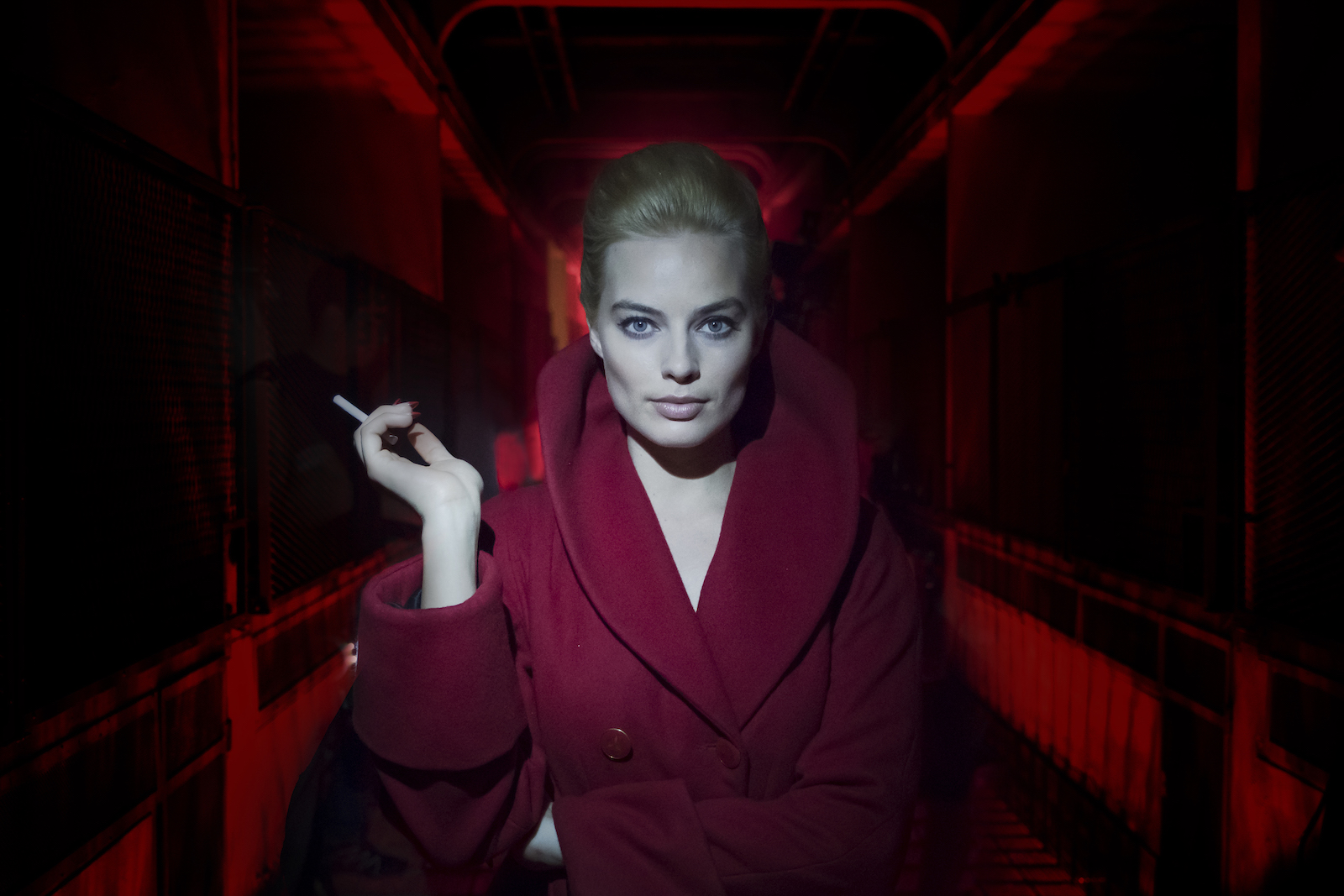So shines a good deed in a naughty world
If revenge is a dish best served cold, the long con is the aged whiskey with which to wash it down. This is the process that makes the initial Terminal reveal feel predictable, but when the other shoe drops is when the story truly takes its twists and turns. It’s a curvaceous trail of interwoven characters who meet at the intersection of manipulation, validation, and of course, death.
The eminent quote from Terminal can double as the movie’s synopsis with fluid accuracy:
“An over elaborate scheme perpetrated mercilessly upon you by highly motivated, highly intelligent individuals with a penchant for amateur dramatics.”
Terminal
Director: Vaughn Stein
Rated: NR
Release Date: May 11, 2018
Margot Robbie shines in this neo-noir thriller and shares the screen well with Simon Pegg, Dexter Fletcher, Max Irons, and Mike Myers. Robbie’s Annie flashes mischievous smiles and devious glances that would make Harley Quinn stop in her tracks. Annie is determined. She’s found a path to Mr. Franklin, a powerful man of mystery who provides high-paying contracts to assassins. It’s a big deal to receive a black suitcase with instructions from Mr. Franklin, as the hitman duo of Vincent (Fletcher) and Alfred (Irons) find out. Little do they know what’s truly in store for them.
One of the central locations throughout the film is the End of the Line Diner. It’s here where Annie the waitress meets–on separate occasions–the aforementioned hitmen and a dying English professor named Bill (Pegg). His medication is tucked away in his steel cigarette case and his cure lies on the tracks of the 404 train due in the morning. It’s fitting that Terminally Ill Bill finds himself contemplating death in a euphemistic diner (and movie title), expressing thoughts of suicide to which Annie excitedly offers assistance. “Death is the best fit,” she says, and when Bill asks her to what, she exclaims “life!” After running through a handful of scenarios rather quickly, Annie opines that there are more ways to end life than there are ways to live it. She is not one for empathy.

Annie is the center of the film, as if that wasn’t already clear. We see her as a waitress and an exotic dancer. A nurse and a killer. A flirt with a tendency for manipulation accomplished with the ease of a summer breeze. Annie’s background isn’t initially clear and how she ends up as a jack-of-all-trades master of all isn’t fully fleshed out, even as the story reaches its conclusion. However, the summation and execution of her end goal are what makes that long con whiskey so smooth.
From the opening, it’s clear what sort of artistic direction the film would take. Neon lights adorn the train station and every other location Terminal visits. The outside of the buildings shine bright, but inside each one bodes a darkness that suits the film well while providing an aura of deception lurking in the shadows. Vincent and Alfred frequent the diner where the latter’s dance with Annie takes form. The stakeout room shared by the two hitmen is less than desirable, but exactly what could be expected from the setting. It’s here where the feel of Sin City is replicated with the impression that a mugging could happen at any time.
Throughout most of the film, it’s easy to deduce where it’s headed and can at times feel a bit slow and slightly convoluted, especially in the final act. One of the cooler edits happens in the opening scene during a deal-making conversation between two characters in a church confessional. Close-ups of one’s eyes and mouth, bouncing back and forth between the two senses in a manner that feels as though the conversation with the eyes is as important as the words being said. This stylized approach dissipates as the film goes on and transfers to more traditional angles, though there is the occasional odd frame mixed in here and there (shout-out to the rarely used wide angle).

Terminal pulls through in the end, and Robbie provides a fun, sultry performance as she continues branching out. Having been the positive part of a disappointing Suicide Squad, and most recently portraying controversial figure skater Tonya Harding in I, Tonya (which, in this writer’s opinion, should have been a Best Picture nominee, but that’s neither here nor there), Robbie’s range is ever-growing. Her discussions with a pallid Pegg were the better part of the film as their conversations were filled with unusual discourse regarding life and death. Pegg, for his part, provides an excellent shift from his generally comedic role into a serious man with serious problems and a wavering belief on how to handle himself.
Terminal isn’t the first film to delve into the world of assassins, revenge, or even both. It does, however, provide a different twist that makes the payoff mostly worthwhile, even if the general lead-up lends itself to towards initial predictability. Deception and death is the ultimate outcome, and the dish is as cold as it’s ever been.


